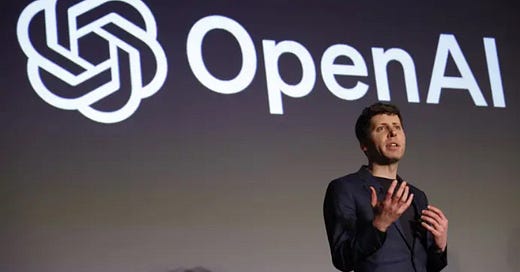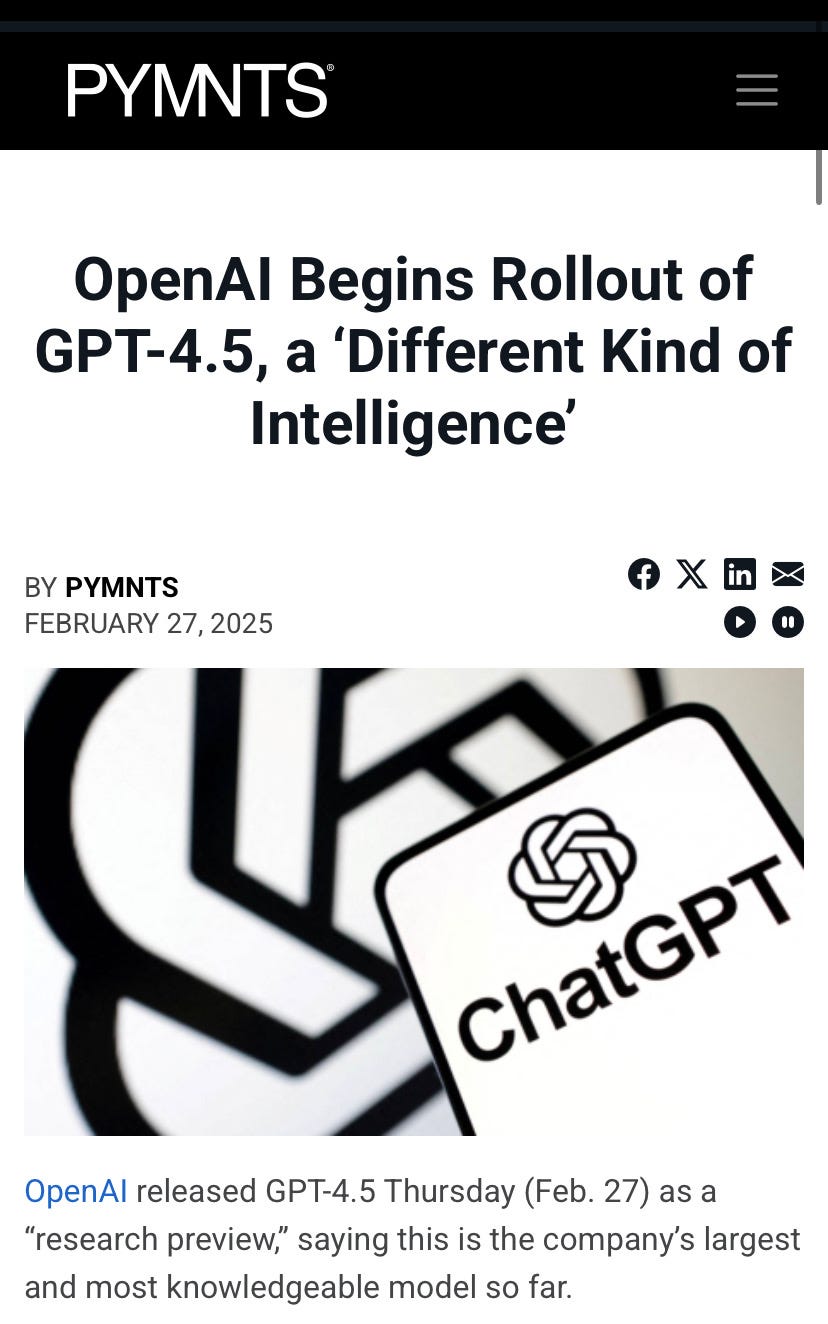This article is a follow-up to our previous piece, Beyond Automation. If you haven't read it yet, we recommend starting there to understand the foundation of AI's impact on financial services, advisors, and how firms are shaping today to stay above water.
The Efficiency Paradox…SOLVED!
Imagine a world where the relentless churn of administrative tasks, the data entry, the compliance checks, the endless emails, simply… dissolves. Not gradually, not incrementally, but as if by an invisible hand. This isn't a distant fantasy whispered among futurists; it's the imminent reality for financial firms, ushered in by a force so profound, it’s akin to discovering a new law of physics for productivity.
We stand at a precipice. For years, "automation" has been the industry's buzzword, promising efficiency gains. And indeed, tools like eMoney and RightCapital have whittled down the edges of tedium. JPMorgan Chase, for instance, has embraced its "LLM Suite," a testament to how even financial giants are bending towards the wind of AI. They’ve begun to understand that the real magic isn't just in crunching numbers faster, but in making the entire system smarter. ChatGPT, too, has quietly slipped into the operational fabric of enterprises like Amgen, proving its mettle not just as a chatbot, but as a digital colleague.
But all of this, for all its undeniable utility, has been merely the prelude. The warm-up act.
Because this July, something different is arriving. Something that reshapes the very definition of "intelligence" in the digital realm.
Go “Behind The AUM” with our new series in July.
We’re taking you inside the minds of the leaders who built it, starting with a $2.7 billion powerhouse out of Virginia and the founder of a brand-new niche firm from North Carolina.
Don’t miss the interviews with these firm owners. Subscribe to get the first episodes. It will be available on podcasts soon, as well as here immediately for audio listening.
Enter GPT-5.
This isn’t just another software update. Forget the incremental improvements we've grown accustomed to. GPT-5 is being hailed as the dawn of Artificial General Intelligence AGI. And the distinction is critical. Think of it this way: a calculator is intelligent at arithmetic. A sophisticated financial model is intelligent at forecasting. But AGI? It’s intelligent at everything.
OpenAI, in their quiet laboratories, haven't just iterated; they've fundamentally reinvented. GPT-5 is a unified neural architecture. Text, code, images, video it all flows through one seamless, interconnected brain. Imagine the specialized brilliance of a stock analyst, a legal expert, a market strategist, and a client psychologist, all rolled into a single, cohesive entity. It's the AI equivalent of combining an entire symphony orchestra into a single virtuoso.
Sam Altman, the architect of this revolution, has hinted at its staggering capabilities privately: smarter than any human in specialized tasks. This isn't about passing a Ph.D. exam; it’s about rewriting scientific papers, debugging entire codebases, crunching through complex math in the blink of an eye. For financial advisors, this translates into unprecedented analytical power at your fingertips, allowing for a depth of market understanding and risk modeling previously unattainable.
The Zero-Friction Principle.
What does this mean for your laptop, your phone, your office? GPT-5 isn't just a cloud-based service. It's an AI operating system, designed to run natively on your devices, weaving them into a hyper-intelligent network. It can manage real-time multitasking better than any human ever could: analyze a dataset, draft a client email, design a pitch deck, and update your calendar simultaneously, without a single hitch. Zero lag, zero task switching, just pure, unadulterated productivity.
And here’s the kicker: memory. GPT-5 boasts a context window that spans literally years. It remembers every conversation, every document, every nuance of your client relationships. It will know your clients better than you know them, anticipating their needs, reminding you of their preferences, and proactively suggesting next steps. This is personal assistant level 1000.
The genius of this isn't just the power; it’s the simplicity. No more wrestling with disparate plugins. GPT-5 intelligently routes tasks internally, delivering perfect results every time. Friction, that insidious drain on productivity, is dead.
Consider the early adopters: Morgan Stanley, with their "AI @ Morgan Stanley Debrief" tool, already seeing advisors freed from note-taking, redirecting their energy back to client engagement. This is a glimpse of the future, a future where AI handles the drudgery, leaving the uniquely human elements, empathy, complex problem-solving, relationship building to a few prompts or line of code.
PR Release: Here.
By 2030, the lean financial firm will be a testament to this shift.
Imagine a practice where:
* Client Management is Telepathic: GPT-5 proactively suggests portfolio adjustments based on a client's life events or market shifts. Personalized communications are drafted and sent, not just efficiently, but with deep contextual understanding.
* Operations are Invisible: Compliance is continuous, risk monitoring predictive, and data entry simply doesn't exist as a human task. Your back office becomes a self-optimizing, silent engine of efficiency.
* Planning is Alive: Financial plans adapt in real-time to market changes and client circumstances. GPT-5 runs countless "what-if" scenarios, stress-testing portfolios, and identifying opportunities before you even think to ask.
* Asset Management is Hyper-Optimized: AI continuously refines investment strategies, processing vast data, detecting subtle market signals, and optimizing portfolios with precision no human could match.
The Wrong Question We Ask.
The story we're told about replacement is wrong. The real story is about elevation. For every professional and firm in this industry, the machine is arriving not to take your job, but to take your busywork, leaving only the most human, and most valuable parts behind.
This isn't incremental. It's a leap equivalent to the internet, and the tipping point is already here. The great irony is that a change this profound is happening in plain sight, while the masses are still waiting for it to begin.





